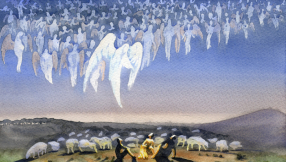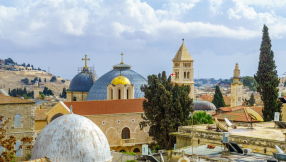Fissure over women bishops deepens in Church of England
Opponents of women bishops say they have gained ground in the General Synod and estimate that 66 clergy (32.10%) and 77 laity (35.46%) will vote down draft legislation on women bishops unless it is amended to include more provisions for those who in conscience cannot accept women in the episcopate.
Rod Thomas, of orthodox Anglican group Reform said: “Only 34% is needed to block this when it returns from the dioceses. For the first time, it can and will be blocked by both fully elected houses.
“In the clergy only a further 1.81% is needed, and that’s just one person. There are 21 new evangelicals on this new synod, and one out of a possible 58 undecided is a given!”
He said the outcome of the elections suggested that the Bishop of Fulham, John Broadhurst, had been “too early” in making his decision to join an ordinariate in the Roman Catholic Church.
His view is shared by the Catholic Group in the Church of England, which said it deeply regretted Bishop Broadhurst’s decision to leave the Anglican fold.
Reform’s interpretation of the Synod results has been refuted by Women And The Church, a group that supports the consecration of women.
It said Reform’s claims were “premature”, as many candidates had not declared their views on the draft legislation for women bishops prior to the elections.
Hilary Cotton, Vice-Chair of WATCH said: "We are 18 months away from the opportunity for General Synod members to vote on the issue. During that time every diocese will be discussing and voting on the draft legislation, including the considerable provisions it includes for those who will not accept women as priests or bishops.
“General Synod members will be listening carefully to those debates. We expect there to be widespread support across the dioceses to proceed to consecrate women bishops on the basis of this legislation without further delay.”
The Church of England voted at its General Synod in July to send out draft legislation on women bishops to dioceses for consideration.
The legislation requires female bishops to delegate some episcopal duties to a male bishop where that has been requested by a traditionalist parish, but opponents of women bishops say the provision does not go far enough.
If it is approved by a majority, it will come before the General Synod again for final approval.
Although the consecration of women bishops is not expected to trigger an exodus of congregations, St Peter’s church in Folkestone became the first to begin the process of joining Rome last month.













